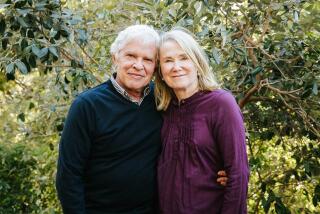Russia Rules Anti-Semitic Tract a Fraud
- Share via
MOSCOW — In what observers called a historic ruling, a Russian court has pronounced the infamous “Protocols of the Elders of Zion” an anti-Semitic forgery--the first such verdict in the land where the fraud originated 90 years ago.
“Up to now every country had disengaged itself from this shameful book--except Russia, where it was concocted,” Tancred Golenpolsky, the publisher of the Moscow Jewish newspaper that won the ruling, said Saturday.
The court case arose 10 months ago after Golenpolsky’s Jewish Gazette accused the radical nationalist group Pamyat (Memory) of printing anti-Semitic sentiments.
Fostering ethnic conflict is punishable under Russian law.
Pamyat responded with a $19,000 libel suit, saying it has nothing against Arabs, who are also Semitic peoples.
In its defense, the Gazette noted that Pamyat’s newspaper published excerpts from the “Protocols.”
The document, which details purported meetings of Jewish elders at which they plotted to seize control of the whole world, became the focus of the trial.
On Friday, a Moscow district court judge ruled that the document was indeed a forgery.
She turned down Pamyat’s claim and fined the organization court costs of about $190.
The ruling by Judge Lyudmila Belikova was hailed by the Los Angeles-based Simon Wiesenthal Center, which provided financial support for Golenpolsky and documentary material to the court.
“The ruling today under Russian law destroys any veneer of respectability that hatemongers around the globe have tried to bestow on this hateful work,” said Rabbi Abraham Cooper, the center’s associate dean, in a statement.
Pamyat was unrepentant.
“They have no decency left to say the ‘Protocols’ are a fake when the entire history of Russia after 1917 is solid proof that they are genuine,” said Dmitri D. Vasiliev, head of the organization, in an interview Saturday.
Referring to the fact that such Communist theoreticians and luminaries as Karl Marx and Leon Trotsky were Jewish, he said: “Who made the revolution? Who ruined and sold out the country? Take time and read the ‘Protocols’; the answers are there gaping at you from every page.”
But Golenpolsky argued that the significance in the ruling lies not in its prospect of eradicating anti-Semitism in Russia.
“Anti-Semitism will appear every time prices on potatoes and bread go up,” he said in an interview. “What’s important is that law and the government will take a stand.”
For most of this century, the “Protocols” has been a key manifesto of anti-Semitism. It was used as a pretext for Eastern European pogroms, was a centerpiece of Hitler’s “Mein Kampf” and permeated Nazi propaganda.
It has been consistently condemned by courts around the world.
In 1927, an American judge ordered auto magnate Henry Ford to destroy a large printing of the book that Ford had personally financed. As recently as 1991, the South African government banned it as an immoral publication.
Contemporary evidence shows that the “Protocols” was written by members of Czar Nicholas II’s Okhranka, or secret police, in 1903.
Its very birth was particularly unsavory; as much as 60% of the document is a bald plagiarism from an anti-Semitic tract published in France about that time.
The Okhranka fashioned the document as the purported agreement of a group of Jewish elders meeting in Switzerland in 1897 to plot Jewish hegemony through the destruction of Christian civilization.
Judge Belikova based her ruling in part on testimony by a panel of three Russian academic experts who examined the document.
The experts were agreed to by both sides, although Golenpolsky said his only stipulation was that they not be Jewish.
“My conclusion was that this is prima facie apocryphal and that this is an anti-Semitic document,” said one of the experts, Lionel Dadiani of Moscow’s Institute of Sociology, who wrote a 67-page opinion for the court.
Sergei Loiko of The Times’ Moscow Bureau contributed to this report.
More to Read
Sign up for Essential California
The most important California stories and recommendations in your inbox every morning.
You may occasionally receive promotional content from the Los Angeles Times.













